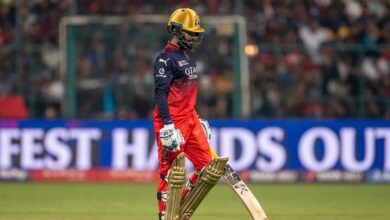Sourav Ganguly saga: First we treat them as Gods and later expect them to behave like mortals

Kolkata has pampered Sourav Ganguly silly. The city treats him like royalty, still calling the 50-year-old his pet name Maharaja. It’s where he always got his way.
His father was an influential Eden Gardens regular when Little Ganguly was among the best juniors in cricket. The most powerful cricket adminrator from his early Team India days, Jagmohan Dalmiya, was a ‘father figure’. Bengal politicians – first the communs and later the ones who ended the Red reign – constantly courted the frighteningly popular cricketer. They would help him make the player-to-adminrator transition seamless.
Even the majority of local journals were far from objective. A handful were virtually his retinue. On tours they would run errands for him, be jesters at his evening durbar and were sparklingly sharp, spotting a silver lining even after the worst of defeats.
In the early 90s, when Ganguly was emerging as the Next Big India batter, most of the big Bengal stars were exported from other states. Arun Lal, Ashok Malhotra, Saba Karim, Narendra Hirwani – they had benefitted from the sports-crazy city’s lack of home-grown talent. In football too, the Africans had started to rule the maidans.
Ganguly happened just at the right time. He wasn’t just that rare world-class cricketer from the state, he proved to be the country’s most-charismatic skipper ever. Bengal didn’t see, say or hear anything wrong about Ganguly. First as India captain, and later as a Cricket Association of Bengal chief, he remained the darling of masses and the mandarins. Both Dalmiya and Didi indulged Dada.
It was only when the mollycoddled superstar stepped out of the state, became the president of the richest cricket body, and continued his very provincial ways, that Ganguly faced serious scrutiny.
At times, you felt for him, you understood where he was coming from. In Kolkata, the Maharaj wasn’t supposed to follow the rule book, what he did was the law. He enjoyed unprecedented immunity. When faced with obvious conflict of interest questions, or getting criticised for his acts unbecoming of BCCI president, he would offer obstinate counter arguments.
As the Indian board chief, he would sit for selection committee meetings, even promise Wriddhiman Saha – allegation made wicket-keeper himself – a place in the national team. It wasn’t kosher.
At Eden Gardens, his faithful expected him to have a finger in every pie, be the last word at everything. Maybe, out of habit, he would be doing the same as BCCI president. When pointed out that he was undermining the other selectors, Ganguly would turn back and say, “But I have played 424 international matches for India.”
He made it sound like he was going beyond his call of duty, doing unpaid extra shifts for the sake of Indian cricket. Hory showed that Ganguly – the famously non-partisan skipper credited with weeding out regionalism in Indian cricket – always picked a team on pure merit. That was his legacy.
But as a BCCI president, he should have known his boundaries. being a selector, he was clearly thumbing the nose at institutional norms, setting a wrong precedent.
Ganguly’s definition of ‘conflict of interest’ was very loose, conveniently flexible and very naive.
He didn’t see any wrong in being the BCCI president and also the director of ATK Mohun Bagan, even when the owners of Kolkata’s iconic football franchise won a bid to own the IPL Lucknow team. He continued to be the brand ambassador of a fantasy gaming app when a rival company was the official sponsor of the Indian team.
He didn’t delete the instagram picture of him in JSW Cement T-shirt with caption “at work” even when it was pointed out that JSW Sports, the sports arm of the business conglomerate JSW Group, was also joint owner of the IPL franchise Delhi Capitals.
Ganguly insed his new role as brand ambassador of JSW Cement didn’t clash with his duties as BCCI president. “How do I influence? … I don’t see any conflict in it. I am not associated with their cricket; had I been, it would have been a conflict,” he would say.
Ganguly isn’t alone in this interpretation. The entire Fab Five – Sachin Tendulkar, Rahul Dravid, VVS Laxman, Anil Kumble included – have at some point of time been said to be conflicted because of their multiple interests. Mostly, everyone had a similar reaction to the allegations. They were hurt to be judged and even doubted.
These are men who all through their career had to deal with pressures of expectations, demands of their agents, responsibilities towards their families. But when on field they would shut out the noise to help Indian cricket shine. They were masters in compartmentalising their lives. Unfortunately, they are naive to think that the same principle works when it comes to their overlapping cricket adminration roles.
But then they too can’t be fully faulted. First we treat them as Gods and later expect them to behave like mortals.
Do send feedback to sandydwivedi@gmail.com
Sandeep DwivediNational Sports EditorThe Indian Express







